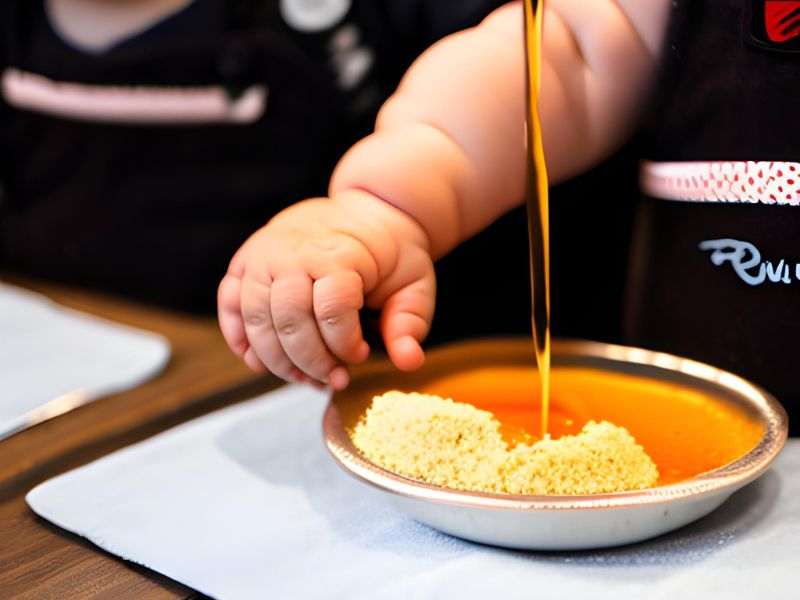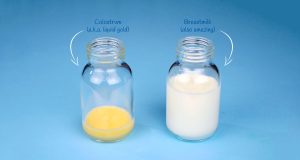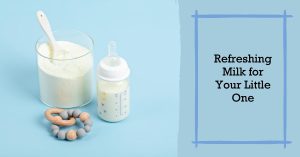Maple syrup is a natural sweetener best suited to pancakes. Pancake is favorite item of the baby. But can babies have maple syrup?
Yes, a baby can have Maple syrup. But it should never be given to a baby under the age of 12 months. A 12-months baby has some potential for botulism from maple syrup. Remember three things before serving maple syrup-
- It is important to use only pure organic maple syrup with no additives or preservatives
- Always check with your paediatrician before introducing new foods into your baby’s diet.
- Make sure the portion size is small and start with just a few drops or teaspoons to test out
In this guide, we will discuss in detail the maple syrup for babies. Are you thinking of feeding maple syrup to your baby? then this guide is for you!
Where Does Maple Syrup Come From?
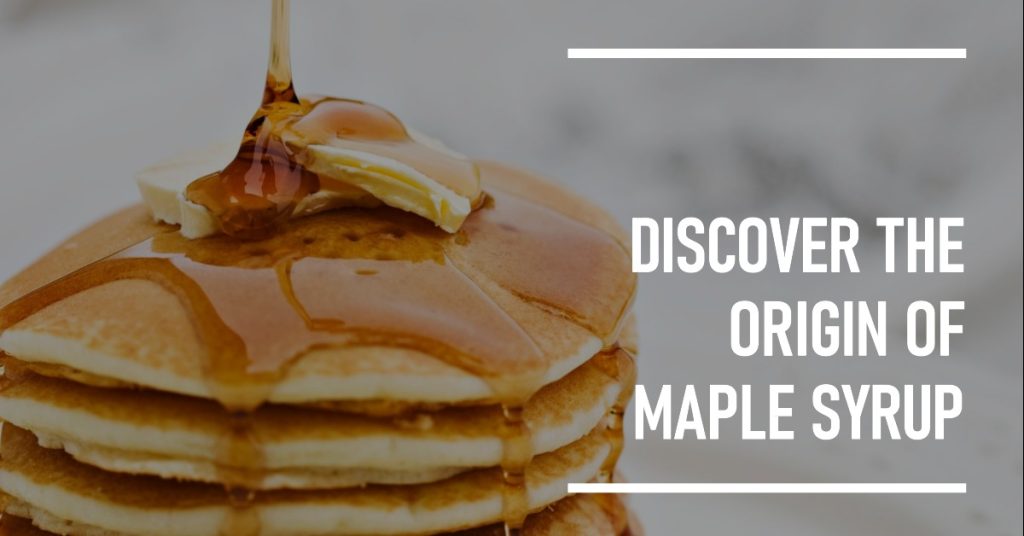
Maple syrup primarily comes from North America. Particularly it comes from the regions with a climate conducive to maple tree growth. The largest producers of maple syrup are Canada and the United States. Especially, northeastern parts of both countries are particularly known for their high-quality syrup.
In the United States, states like Vermont, New York, New Hampshire, and Maine are among the top producers. These states have a climate and abundance of sugar maple trees, which are essential for maple syrup production.
In Canada, the province of Quebec is the world’s largest producer of maple syrup. Other Canadian provinces such as Ontario, New Brunswick, and Nova Scotia also contribute to the production.
It’s important to note that while maple syrup is produced elsewhere in the world, the majority of it still comes from North America due to the prevalence of sugar maple trees in this region.
Can Baby Have Maple Syrup 6 Month-Old?
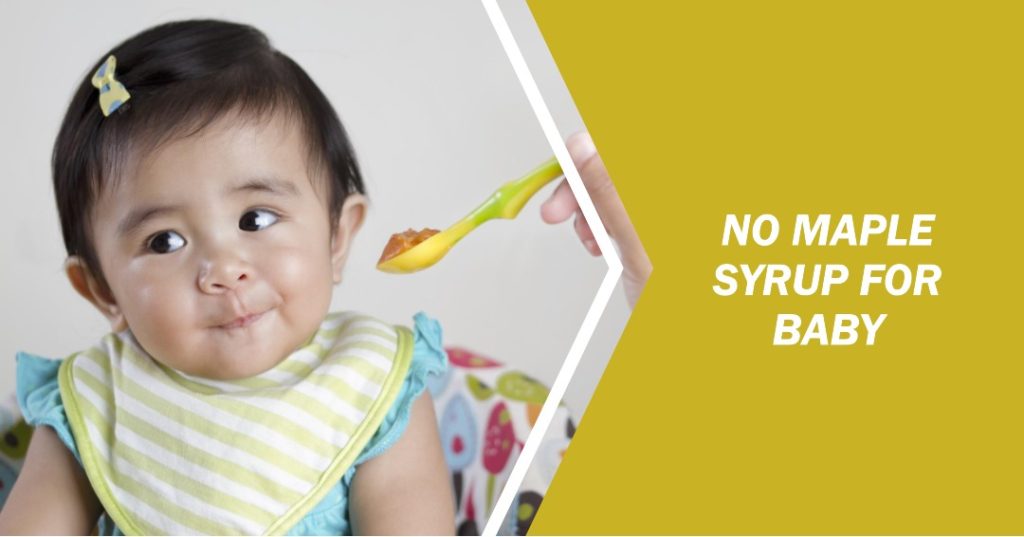
No, baby can’t have maple syrup at 6-month-old age. Introducing maple syrup to a 6-month-old baby is not recommended. The American Academy of Pediatrics (AAP) advises against introducing sweeteners like maple syrup or honey.
Babies under one year old have immature digestive systems and introducing sweeteners can be harmful. It can lead to various health issues, including tooth decay and poor nutrition.
At six months, it’s recommended to focus on introducing solid foods that are nutrient-rich and appropriate for a baby’s development. This typically involves starting with single-ingredient purees of fruits and vegetables. After that gradually introducing other foods is good practice.
Always consult with a paediatrician before introducing any new foods to a baby’s diet. They can provide personalized advice based on your baby’s individual needs and development.
Can Babies under 12 Months Have Maple Syrup
Can Babies Have Maple Syrup which is under 12 months? No, babies under 12 months should not have maple syrup. Maple syrup is high in sugar and lacks essential vitamins and minerals that are important for healthy growth and development in infants. Furthermore, the sugar content of maple syrup can cause tooth decay if taken regularly by a baby who has just started teething.
Therefore, it is best to wait until your baby is at least one year old before introducing them to any form of added sweetener like maple syrup.
Can 7 Month Have Pure Maple Syrup?
No, it is not recommended that 7-month-old babies have pure maple syrup. Maple syrup is a naturally sweet product produced from the sap of maple trees and contains high levels of sugar, which can be harmful to young children. In addition, due to its thick consistency and sticky nature, it can pose a choking hazard for babies at seven months old.
It’s best to wait until your child reaches 12-15 months before introducing any type of solid food or liquid other than breast milk or formula. If you do choose to introduce maple syrup into their diet at an earlier age, make sure that it is highly diluted with water and only given in small amounts as an occasional treat. Always talk with your paediatrician first if you are unsure about introducing anything new into your baby’s diet.
Can Maple Syrup Cause Infant Botulism?
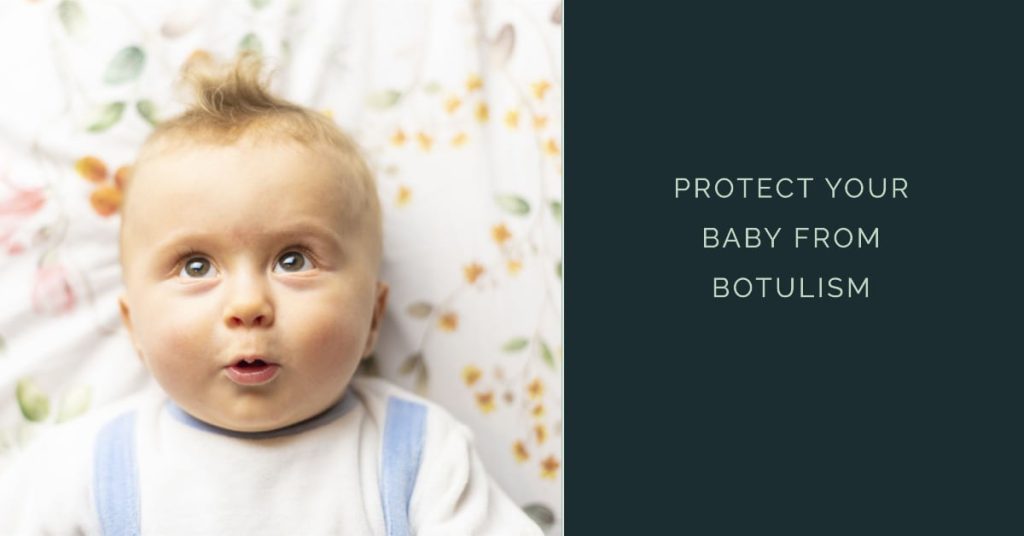
Yes, maple syrup can potentially be a source of infant botulism. Infant botulism. It is a rare but serious illness that can occur when a baby ingests the spores of a bacterium called Clostridium botulinum. These spores can be found in soil and can sometimes contaminate certain foods, including honey and maple syrup.
Maple syrup can still pose a risk because it may not always be heated to a temperature high enough to kill the botulism spores. So, it’s recommended to avoid giving maple syrup (as well as honey) to babies under one year of age. Their digestive systems are not yet fully developed, and they’re more susceptible to the bacteria’s effects.
As a safe alternative, you can sweeten baby’s food with natural sources of sweetness like mashed fruits (e.g., banana, unsweetened applesauce) or unsweetened fruit purees.
If you suspect your baby may have consumed something that poses a risk of infant botulism, it’s important to seek immediate medical attention. The symptoms can include constipation, weak crying, poor feeding, and muscle weakness. Early detection and treatment are crucial for a full recovery.
Why Can’t Babies Have Maple Syrup?
Babies should not have maple syrup before their first birthday due to the risk of infant botulism. Here’s why:
Infant Botulism Risk:
Maple syrup, like honey, can potentially contain spores of a bacterium called Clostridium botulinum. In a baby’s immature digestive system, these spores can germinate and produce a dangerous toxin
Underdeveloped Immune System:
Babies under one-year-old have immune systems that are not fully developed, making them more susceptible to certain bacteria and toxins.
Digestive System Maturity:
The digestive system of a baby is not yet fully mature, and their stomach acidity and enzymes may not be sufficient to destroy the botulism spores.
Safety Precaution:
It is recommended by paediatricians and health authorities to avoid giving babies honey, and maple syrup, to prevent botulism.
How Should Maple Syrup Be Introduced to Babies With Baby-Led Weaning?
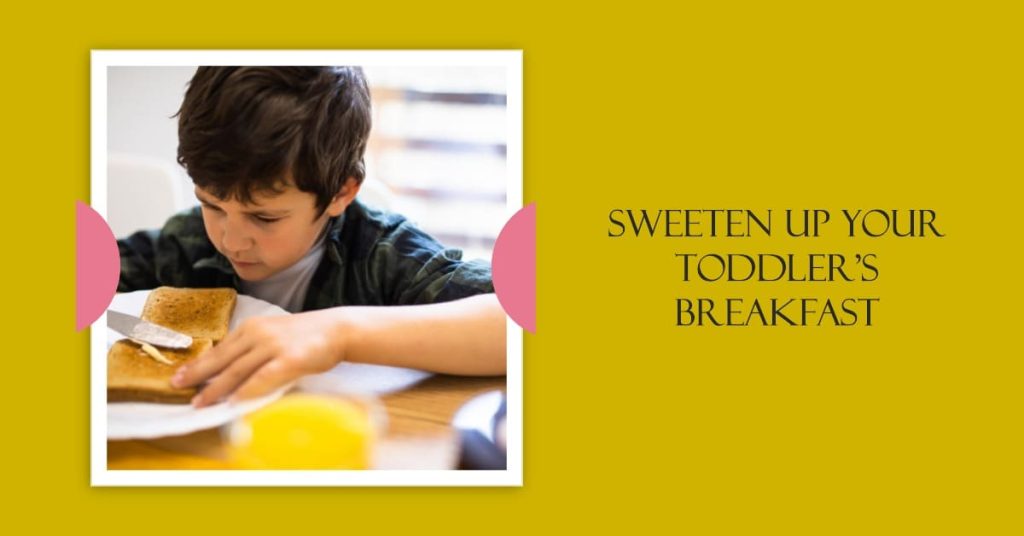
If you’re considering introducing maple syrup to your baby through baby-led weaning, it’s crucial to approach it with caution and follow some important guidelines:
Wait Until the Right Age:
Introducing sweeteners like maple syrup should be delayed until after the baby turns one year old. Before that age, a baby’s digestive system is not fully developed and may not be able to handle the bacteria that can be present in maple syrup.
Start with Other Foods:
Begin baby-led weaning by introducing a variety of single-ingredient, nutrient-rich, and easy-to-handle foods. These can include steamed vegetables, soft fruits, cooked grains, and small pieces of lean meats or tofu.
Use Maple Syrup Sparingly:
When you do decide to introduce maple syrup, use it in very small amounts, and dilute it with water or mix it into other foods. This helps ensure that the baby is not getting too much sugar in one sitting.
Choose High-Quality Maple Syrup:
Opt for pure, high-quality maple syrup without any added sugars or artificial ingredients. Look for labels indicating that it’s 100% pure maple syrup.
Monitor for Allergies or Reactions:
Keep an eye on your baby for any signs of allergies or adverse reactions after introducing maple syrup. Symptoms may include hives, digestive discomfort, or changes in behavior. If you notice any of these, stop giving maple syrup and consult a paediatrician.
Avoid Combining with Choking Hazards:
Be cautious when introducing maple syrup alongside foods that pose a choking risk, such as whole nuts, large chunks of hard fruits or vegetables, or foods with small seeds.
Remember, it’s always best to consult with a paediatrician or a registered dietitian before introducing any new foods
Can Babies Have a Maple Syrup Allergy?
Yes, babies, like anyone else, can have an allergy to maple syrup. A maple syrup allergy is a reaction of the immune system to proteins found in maple sap or syrup. Symptoms of a maple syrup allergy can range from mild to severe and may include:
Skin Reactions:
This can include hives (red, itchy welts on the skin) or eczema.
Digestive Issues:
These might include stomach pain, nausea, vomiting, or diarrhoea.
Respiratory Symptoms:
An allergic reaction can lead to difficulty breathing, wheezing, or anaphylaxis. These are a potentially life-threatening allergic reaction that requires immediate medical attention.
If you suspect an allergy then consult a pediatrician or an allergist for proper evaluation and diagnosis. They may recommend allergy testing to confirm the allergy.
How Do You Sweeten Baby Food?
Can babies have maple syrup in baked goods to make them sweet? When it comes to sweetening baby food, there are a few different ways to do it. You can use natural sugars like honey or maple syrup, or add some fruit for sweetness like mashed banana, applesauce or other pureed fruits. If you want to avoid added sugars altogether, you can also make your own savoury baby food mixes with spices and herbs that will give the food flavor without adding any sugar.
Adding small amounts of sweeteners such as dates and raisins is another way to naturally sweeten baby food while avoiding processed sugars. If you’re looking for an added touch of sweetness in store-bought foods, consider buying unsweetened products that include vegetables and fruits as the main ingredients instead of sugary snacks. Finally, try mixing flavors together for variety; for example, combining applesauce with carrots or adding cinnamon to oatmeal can give your baby’s meal a unique flavor without having to add extra sugar.
What Can I Substitute Honey for Babies?
If you’re looking for an alternative to honey for babies, there are a few options available. First and foremost, it is important to note that honey should never be given to infants under one year of age due to the potential risk of botulism. For children over one-year-old, however, several alternatives may be considered.
Unprocessed organic maple syrup or date syrup can provide sweetness without the inherent risks associated with honey consumption. Additionally, applesauce or mashed banana are both excellent natural sweeteners that can easily be incorporated into your baby’s diet in place of honey.
Lastly, agave nectar is another option that provides sweetness while still being safe for young children – just make sure it has been processed at low temperatures so as not to contain harmful toxins from processing methods such as high-fructose corn syrup or chemical additives.
Ultimately, it’s up to parents and caregivers when considering which type of sweetener is best suited for their child – but if you’re looking for a substitute for honey in your little one’s diet, these are some great alternatives!
Botulism Diseases From Maple Syrup
Conclusion
In conclusion, maple syrup can be a healthy and delicious treat for babies if given in moderation. Parents should consult with their paediatrician before introducing any kind of sweetener to their baby’s diet.
Furthermore, it is important to opt for organic or pure maple syrup over processed syrups as they contain fewer additives and preservatives that could potentially be harmful to your baby’s health.
All in all, maple syrup can make a great addition to your baby’s diet if given in small amounts!

